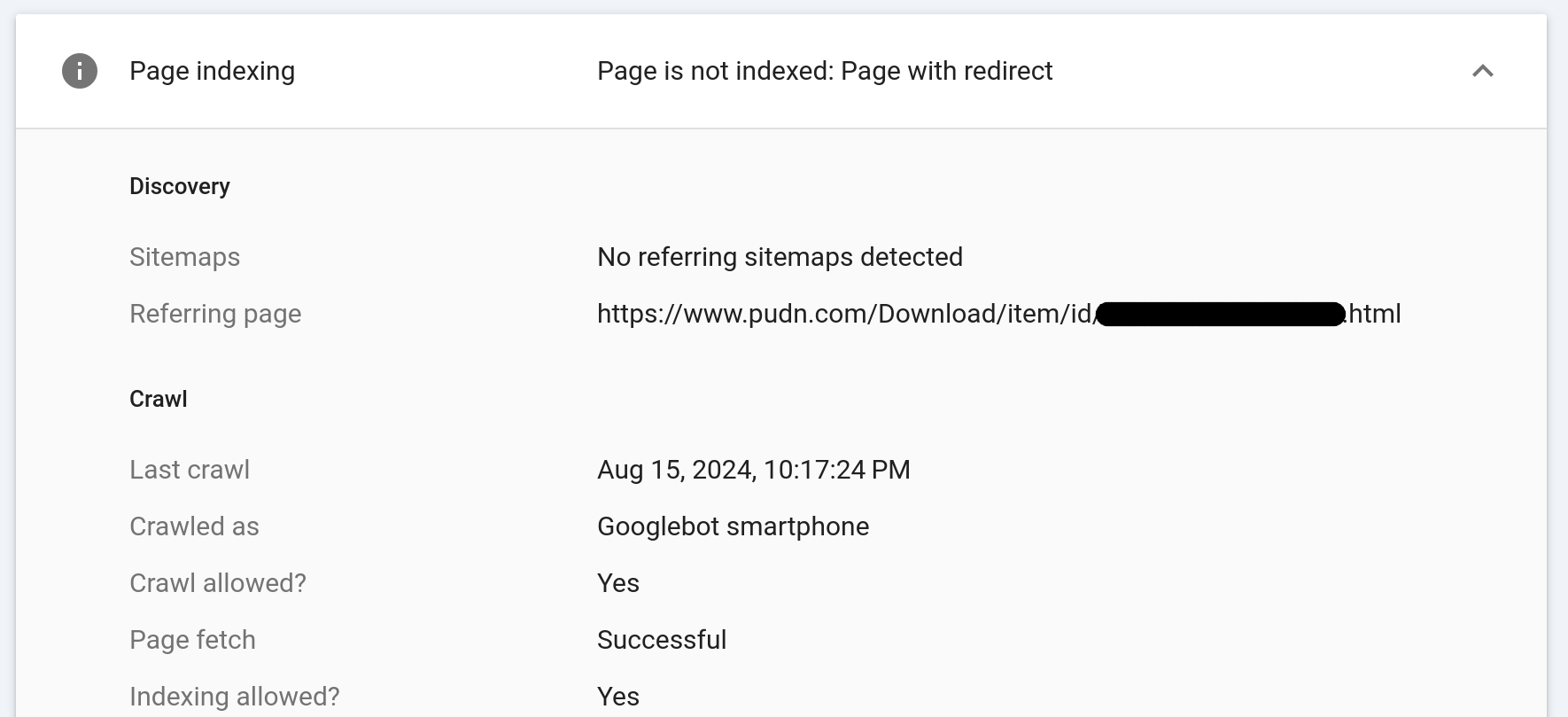I have a small blog on github.io since a few months. Recently, I noticed that it's not showing up in the search results at all, so I created an account for Google Search Console and requested an indexation of my page. However, the page couldn't be indexed because it's supposedly a "page with redirect".
The problem is as follows: The URL I checked (example.github.io/blog) does not redirect, but the parent page (example.github.io) currently redirects to /blog. Why does the crawler thinks this page is a page with redirect? Is it because the site URL example.github.io is a redirect to example.github.io/blog?
Next, I find it strange that the Google Search Console tells me the "referring page" is https://pudn.com/Download/item/id/1234567890.html. This is apparently a strange Chinese website that randomly clones GitHub repositories, including the repository with my blog content. I have nothing to do with this site. The final HTML of my blog does not contain this URL anywhere.
However, in this context I'm wondering what's the meaning of "referring page" in this context? Is this a page that has a link to my blog (which it has)? Or does my blog somehow refer to this strange website?


https://example.github.io/blogdoesn't redirect toexample.github.io/blog/(with a trailing slash)? If so, you'll want to inspect the latter in google search console.curl https://example.github.io/blogand it gave me an HTML document with the standard301 Moved Permanentlymessage. Thanks, that answers my first question. If you post an answer, I'll accept it. The answer to the second question is probably that's just a website that links to my site, through which Google found my site.